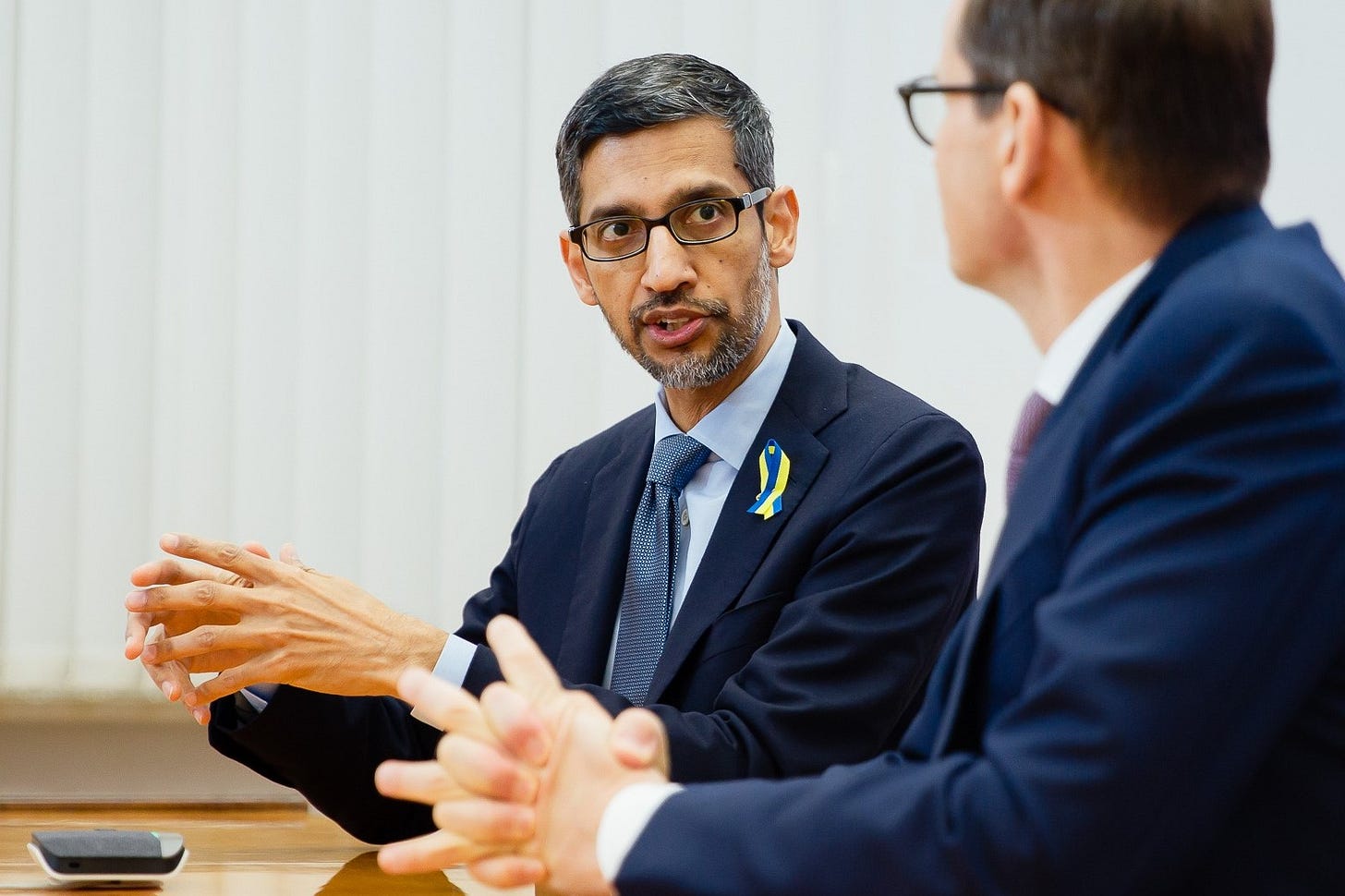AI 2026: Sundar Pichai is Tasked With Preserving Google
The CEO of Google presided over years of peaceful growth but now finds himself in an extreme competition for commercial and technological leadership.

This Bismarck Brief will contribute to our exclusive upcoming AI 2026 Bismarck Strategic Report, which will feature in-depth analysis of the state of the artificial intelligence sector and technology, together with a comprehensive profile of key players. Upgrade or subscribe now to receive full access and never miss a report.
Sundar Pichai has been the CEO of Google since 2015 and the CEO of Google’s parent holding company Alphabet since 2019. With a market capitalization of nearly $3.5 trillion (GOOG) as of November 2025, Google is the fourth-most valuable company in the world.1 With yearly earnings of some $140 billion, it is also the most profitable company in the world besides Saudi Aramco. Google’s massive revenues overwhelmingly come from its core business in online search advertising, which makes up nearly 80% of its revenues as of 2024.2 Google is also a major player in the ongoing race to develop and commercialize artificial intelligence technology. Through the Gemini series of models and others, the company directly competes with AI labs like OpenAI, Anthropic, or xAI. At the same time, Google is also a major provider of remote computing and data storage capacity i.e. “cloud computing,” which requires the building and operation of large data centers full of high-end computer chips, that are also necessary to develop and offer AI models to users. Through Waymo, the company is also a leading contender in the nascent market for self-driving taxis. As CEO, Sundar Pichai is responsible for coordinating and overseeing these myriad moves in AI.

